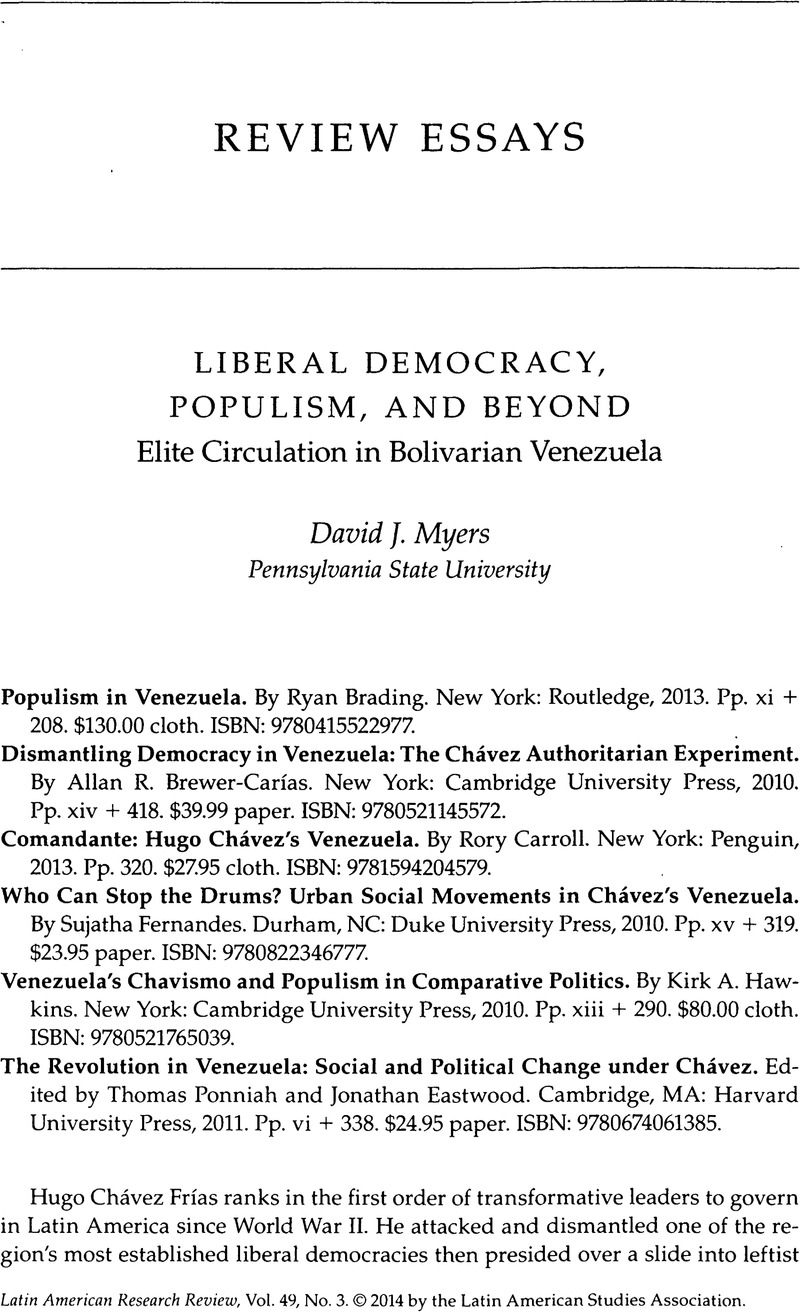Article contents
LIBERAL DEMOCRACY, POPULISM, AND BEYOND; Elite Circulation in Bolivarian Venezuela
Review products
Published online by Cambridge University Press: 05 September 2022
Abstract

- Type
- Review Essays
- Information
- Copyright
- Copyright © 2014 by the University of Texas Press
References
1. Alan Knight, “Historical and Theoretical Considerations,” in Elites, Crises, and the Origins of Regimes, ed. Mattei Dogan and John Higley (Lanham, MD: Rowman and Littlefield, 1998). Gaetano Mosca, The Ruling Class, ed. Arthur Livingston, trans. Hannah D. Kahn (New York: McGraw-Hill, 1939).
2. Chávez portrayed his movement as an updated version of Simón Bolivar's dream of creating a powerful state in northern South America. Members of his inner circle were thus known as Bolivarians.
3. Ernesto Laclau, On Populist Reason (London: Verso, 2005).
4. Reinhard Bendix and Seymour Martin Lipset, Class, Status and Power: A Reader in Social Stratification (Glenco, IL: Free Press, 1953).
5. During the 1998 and 2000 presidential election campaigns I had periodic conversations with Chávez that centered on the global balance of power and the alternatives available to Venezuela. In those exchanges I found him to be hard-headed, nationalistic, and possessing a good grasp of how Venezuela could use soft power to advance its international interests. Williams's work confirms those impressions.
6. Barrio Adentro is the medical program that allocated clinics staffed by Cuban doctors to the urban slums. It became a parallel medical system to the one that was part of the traditional bureaucracy in which care was given by Venezuelan medical personnel.
7. Jose Manuel Ponte, “Renta y revolución: La economía política de Venezuela durante el gobierno de Hugo Chávez” (paper prepared for the 30th Congress of the Latin American Studies Association, San Francisco, California, May 23-26, 2012).
- 1
- Cited by




